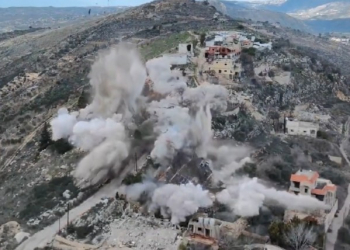Sharm El-Sheikh: An Integrated Assessment of Air Pollution and Climate Change for Sustainable Development in Africa released on Thursday by the Climate and Clean Air Coalition (CCAC), the United Nations Environment Programme (UNEP), and the African Union Commission shows how African leaders can act quickly across five key areas — transport, residential, energy, agriculture, and waste — to fight climate change, prevent air pollution, and protect human health.
Air pollutants and greenhouse gases often share the same sources and can be even more dangerous when combined.
By following the assessment’s recommended actions to cut air pollution and prevent climate change, African governments could prevent 200,000 premature deaths per year by 2030 and 880,000 deaths per year by 2063; reduce carbon dioxide emissions by 55 per cent, methane emissions by 74 per cent, and nitrous oxide emissions 40 per cent by 2063; improve food security by reducing desertification and increasing crop yields for rice, maize, soy, and wheat; and contribute significantly to global efforts to keep warming below 1.5 degrees C, limiting the negative effects of regional climate change.
“Air pollution is a climate and health emergency, in Africa and around the world. By cutting short-lived climate pollutants, we can slow down the worst effects of climate change in the very near term while protecting human lives. We must come together to work with African nations to reduce emissions from short-lived climate pollutants and eliminate air pollution as much as possible this decade,” said Inger Andersen, Executive Director of UNEP.
Air pollution is the one of the greatest environmental threats to human health and is responsible for about 7 million deaths each year globally.
Air pollutants and greenhouse gases often share the same sources and drivers, including fossil-fuel driven economic growth.a-Some pollutants, including methane and black carbon, directly contribute to both impacts simultaneously.
And because Africa is particularly vulnerable to climate change, preventing emissions from short-lived climate pollutants, like methane and black carbon, will help both save lives and protect the environment.
“Air pollution and climate change are a deadly duo, and must be tackled together,” said Soipan Tuya, Cabinet Secretary for Environment and Forestry, Government of Kenya. “We welcome the release of this Assessment and its findings, which demonstrate how Kenya and African nations can achieve the air pollution and climate goals without compromising on the livelihoods and development objectives of the continent,” she added.
The Integrated Assessment of Air Pollution and Climate Change for Sustainable Development in Africa is the first-ever integrated assessment of air pollution and climate change for the continent and provides a robust scientific basis for action towards clean air in Africa.
The report was developed by a pan-African team of researchers with contributions from international scientists and experts, coordinated by CCAC partner Stockholm Environment Institute (SEI).
The Assessment’s recommendations are closely aligned with key priorities of Agenda 2063 and with the goals and targets of the Sustainable Development Goals (SDG). Nearly all the recommendations can be found in at least one African Nationally Determined Contribution (NDC) and are currently identified as contributing to achieving national climate change mitigation goals.




















